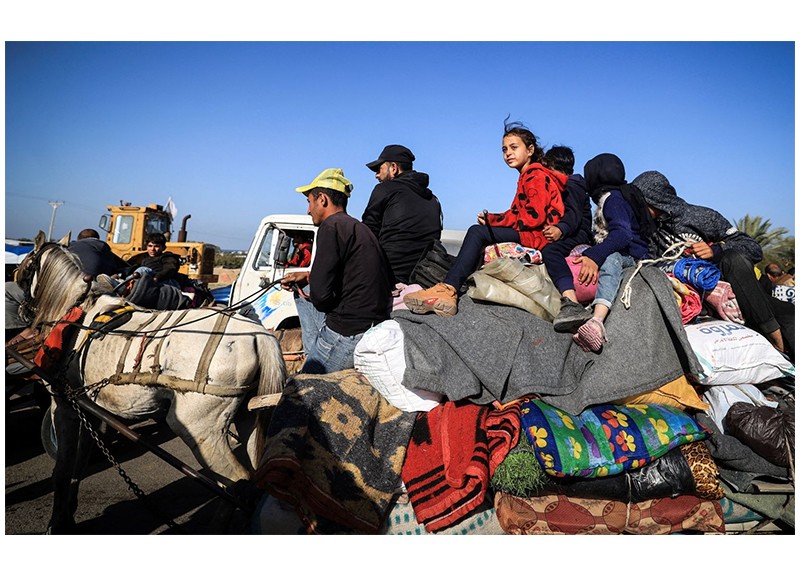
By Summer Said, Margherita Stancati and Laurence Norman / WSJ
Arab countries are working on a proposal for postwar Gaza that would create a path-way toward a Palestinian state in exchange for Saudi recognition of Israel, Arab officials said.
The proposal, submitted to Israel via the U.S., is the first joint plan by Arab states to end the war in Gaza and set a path-way toward a two-state solution. Saudi Arabia, which is one of five Arab countries making the proposal, is offering to normalize ties with Israel in return, a process derailed by the Hamas-led attack on Oct. 7.
The proposal is still being completed, Saudi and Egyptian officials said, but has so far been rejected by Israel's government, with the creation of a Palestinian state the main sticking point. Israeli officials didn't respond to requests for comment.
The news emerged amid a renewed flurry of diplomatic activity from U.S. and European officials seeking to stop the fighting. President Biden's top Middle East adviser, Brett McGurk, arrived in the region on Monday to discuss the war and the fate of Israeli hos tages, meeting Egyptian officials in Cairo before heading to Qatar, Egyptian officials said. In Brussels, the European Union's top diplomat, Josep Borrell, led a group of foreign ministers meeting senior Arab officials and, separately, Israeli Foreign Minister Israel Katz.
At the meeting with EU foreign ministers, people involved in the discussion said the two sides talked past each other. EU foreign ministers pressed for Israel's plans for Gaza after the conflict and for its approach to a two-state solution. Katz didn't significantly address those issues, instead showing his counterparts two videos that touted possible projects for boosting Gaza's economy.
Later, Borrell said Katz would have "better taken advantage of his time" by focusing on the "security of his country and the death toll in Gaza."
The efforts by McGurk, EU and Arab officials come as Israel is under mounting international and domestic pressure to lay out a plan for who will rule postwar Gaza and who will pay for its reconstruction.
The war has taken a devastating toll on Gaza's 2.2 million residents, most of whom are internally displaced and facing a shortage of food, medicines and clean water, among other basic goods.
International pressure is mounting on Israel to alter its conduct of the war or end it.
The Israelis want Gulf nations to play a leading role in rebuilding the enclave, but those countries are demanding a clear two-state solution path.
The Arab plan is on a separate track from negotiations over the release of more than 130 Israeli hostages still being held by Hamas, the Arab officials said. Israeli Prime Minister Benjamin Netanyahu on Sunday said he turned down a proposal by Egypt, Qatar and the U.S. to end the war in return for the remaining hostages, characterizing it as a surrender. Egyptian officials said various Israeli proposals for hostage releases-including a two-month pause in fighting as part of a multiphase deal that would include the release of all remaining hostages held in Gaza-have been rejected by Hamas. Egyptian officials said the country's top negotiator, its intelligence chief, Abbas Kamel, accused Israel's team of not being serious about the talks, and said any proposal that doesn't include a permanent cease-fire wouldn't be taken seriously by Hamas.
The families of Israelis still held hostage have been trying to increase pressure on the government to accept a deal. On Monday, families of captives and one freed hostage stormed the Knesset's finance committee bringing their deliberations to a halt.
"They can't be sitting there while the hostages languish in captivity. We demanded that they stop everything and paralyze the country," said Gil Dickmann, one of the protesters who has a family member hostage in Gaza. Idit Ohel, whose son Alon is a captive, said she supported the protest's agenda. "The war won't necessarily bring the hostages home," she said. "We have to find some kind of negotiation to obtain [their] release."














